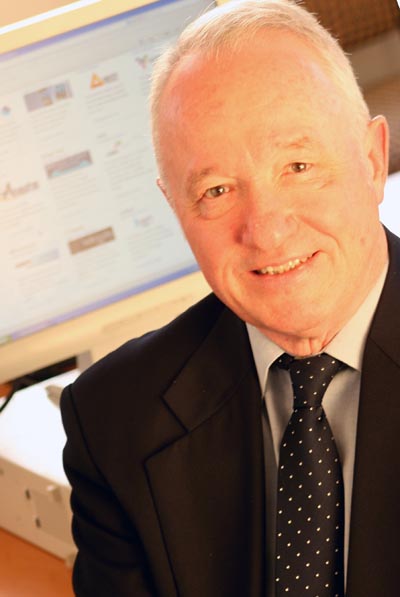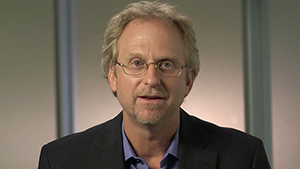Digital Business insights: Retail future?
 RETAIL is a big sector employing 11 percent of the Australian workforce, hundreds of thousands of people – part time as well as full time, including students, men, women and retirees.
RETAIL is a big sector employing 11 percent of the Australian workforce, hundreds of thousands of people – part time as well as full time, including students, men, women and retirees.
Retail has a social, economic and practical value in our society and communities, yet it is steadily being disrupted, eroded, undermined and transformed by the digital revolution.
Retail has been through revolutions before, but this one is the most disruptive ever.
And the solution isn’t simple. It is not enough to say, “Get a web site and use social media and you will be fine."
Not true.
It is not enough to say, “Retail needs to train its staff better.”
Or enough to say, “We need to force people to pay GST on overseas purchases.”
Too late for that.
A perfect storm of commoditisation of products – largely produced in Asia, simple to use payment methods supported internationally, and improved logistics has transformed the whole world into an online store, where the gap between manufacturer, wholesaler and retailer has blurred forever.
The old world retailer has been squeezed out. Plus, existing supermarkets and superstores are using their scale, bargaining power and efficiency to suck the air out of the room in retail category after category.
Competition is diminishing between the big and the small. Only the big incumbents and big multinationals have a chance of playing seriously in this new retail first division. Woolworths, Coles, Aldi and Costco, and the network of IGA stores across the country.
You need money and ICT smarts. And if you have both, you can then move into other products and services at will – liquor, fuel and hardware are examples. Which is really confronting for retailers who thought there was some territory they could control.
No longer.
In the second division – the chains and franchises, the problem can be worse in many ways, because new competition can come from anywhere. Not just from elsewhere in this country, but from any other country. Not just from retailers, but from any wholesaler or manufacturer that decides to change the business model.
And also from the “pure online” players with a good idea and enough powers of persuasion to convince suppliers to shift allegiances.
In the third division are the small retailers, the high street shops and stores in the multitudes of small malls in suburbs across Australia. All under threat.
Having a unique or specialty offering is their only protection. Or the fact that their customer base is mainly local, and turnover is too small to be of competitive interest to anybody else.
Google has changed the game.
Customers have changed their view of the world. People have woken up to the fact of choice.
“I can find things easily and with enough confidence I can and will buy”.
There are still plenty of bad websites and online shopping sites out there. And for the time being this offers some protection to Australian retailers.
But that is not a sustainable way to be protected. It is only a postponement.
And because the online marketplace will continue to get better, threat and erosion is inevitable.
There are now 580 million products indexed from over 500,000 online stores. Shopping search is becoming more personalised and therefore more responsive.
But it is not all smart technology and social media delivering results.
When it comes to converting interest to sales, Coles still finds that its paper based magazine delivers the goods. And Facebook is a poor performer.
Multi media, multi channels, deep pockets and the ICT sophistication to understand and manage all channels and relationships, is what gives the larger retailers the edge. And not just an edge, they are ahead of other retailers by miles and miles.
What used to be a simple business – shopkeeping – has become one of the most sophisticated businesses in the world.
And that means small retailers are history unless they have territory they can defend – local and/or specialty.
As foot traffic declines, we will see retail contraction. We will see an increase in online sales across the board.
That will flow onto less demand for space in bricks and mortar and more vacant high street stores.
This isn’t going to help the government with its overall employment figures as mining sector employment continues to shrink.
There is no simple fix here.
Solutions have to start with deep consideration of the underlying retail business model and what it could and should be, taking into consideration the internal and external threats in Australia.
No point dressing up – by investing time and money in a new website and a social media campaign – if you are on the way to an execution.
Best to avoid the execution altogether if possible. Then once you have a confirmed future, start working on how best to improve it and make it sustainable.
The questioning has to go back to where the real issue and disruption began.
The internet, Google, mobile devices and smart logistics have changed the world.
Do I have the understanding, the ability, the will and the money to compete now that the world has changed?
- John Sheridan, March 2013.
John Sheridan is CEO of Digital Business insights, an organisation based in Brisbane, Australia, which focuses on helping organisations and communities adapt to, and flourish in, the new digital world. He is the author of Connecting the Dots and getting more out of the digital revolution. Digital Business insights has been researching and analysing the digital revolution for more than 12 years and has surveyed more than 50,000 businesses, conducting in-depth case study analysis on more than 350 organisations and digital entrepreneurs.
ends

 How to resolve AdBlock issue?
How to resolve AdBlock issue?  technology (IT) technology trends that are enabling large enterprises to join those start-ups previously recognised as market disrupters in pushing the boundaries of innovation and taking advantage of digital technologies for competitive advantage.
technology (IT) technology trends that are enabling large enterprises to join those start-ups previously recognised as market disrupters in pushing the boundaries of innovation and taking advantage of digital technologies for competitive advantage.